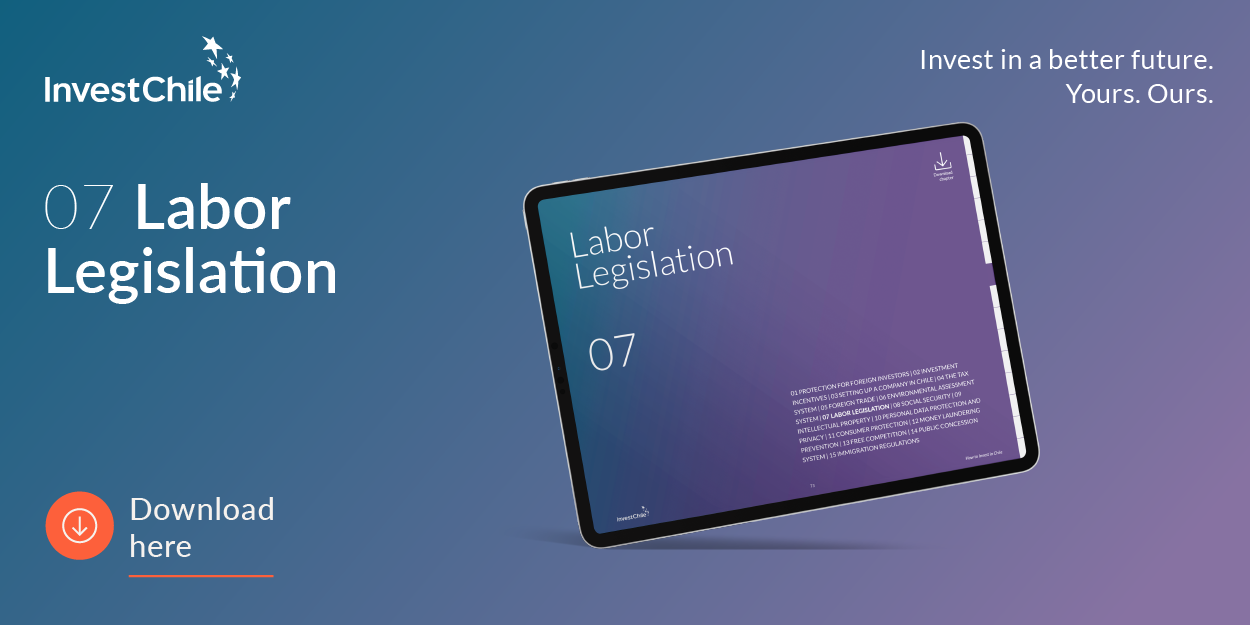The legislation, which aims to improve the quality of life of employees and their families, will reduce the workweek for all individuals governed by the Labor Code.

In Chile, the 40-hour workweek is now a reality. The country’s Chamber of Deputies approved the bill to reduce the workweek for all employees governed by the Labor Code, the final stage before the legislation is enacted.
What comes next? In the coming days, President Gabriel Boric will sign the bill into law, before it is published in the Official Journal of the Republic of Chile.
What does the law to reduce the workweek to 40 hours involve?
The law to reduce the workweek to 40 hours will modify the Labor Code to reduce the ordinary workweek from 45 to 40 hours. The legislation will be implemented gradually in order to mitigate impacts on employment and SMEs. Longer rest periods will also be provided to employees under special regimes, such as domestic employees and in other exceptional cases that require operational continuity such as the mining industry.
Similarly, the law establishes social responsibility measures that aim to improve work-life balance.
Key points of the law to reduce the workweek to 40 hours:
- The law will reduce the ordinary workweek from 45 to 40 hours, in accordance with the following schedule: from 45 to 44 hours in the first year after the law is enacted, 42 hours in the third year, and 40 hours in the fifth year. These are the maximum deadlines for companies to implement the law, and any employer that wishes to reduce its workweek to 40 hours earlier than these deadlines can do so. The “40-Hours Seal” has already been awarded to companies that reduced their workweek before this legislation was passed.
- The law will also apply to special regimes, including but not limited to domestic employees. Likewise, exceptional cases that require operational continuity, such as the mining industry, can meet the requirements by compensating employees for workweeks above 40 hours with additional rest days.
- The law establishes a range of work-life balance measures, such as flexible working hours for parents and guardians of children under 12 years of age, enabling them to better adapt their work schedule to the school day. Overtime can be compensated by providing up to five additional vacation days per year.
- The 40-hour workweek can also be distributed in a 4-day workweek with 3 rest days. Companies that implement the 40-hour workweek before the required deadline can apply the 4-day workweek in advance, through a mutual agreement with their employees.
- In accordance with the specific characteristics of Chile’s labor market, the law includes targeted support measures for SMEs through two decentralized technical bodies: the National Training and Employment Service (Sence) and the Department of Labor.
- The exemption from ordinary workweek restrictions outlined in article 22, section 2, of Chile’s Labor Code will only be applicable to senior management and those individuals who are not subject to oversight given the nature of their duties.
- The law also offers the option of reaching an agreement with employees to meet the 40-hour workweek requirement across an average of up to four weeks, with a maximum limit of 45 hours per week in any given week. In this case, the workweek may not exceed 40 hours for more than two consecutive weeks, and the average of 40-hours per week across each four-week period must be adhered to. If the employee is a union member, prior agreement with the union will be required.
Would you like to find out more about foreign companies that have decided to invest in Chile and are already applying the 40-hour workweek? Read the following article on Canadian bank Scotiabank, which was the first financial institution to adopt the 40-hour workweek in Chile.
Source: Government of Chile



%2017.11.51.png)

